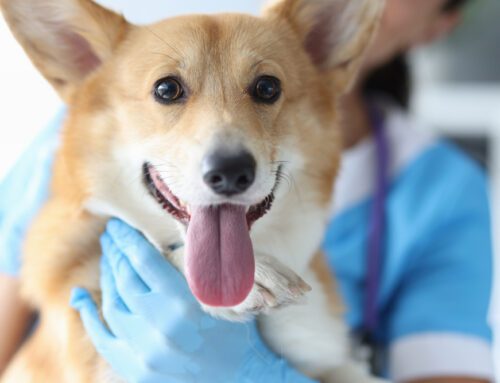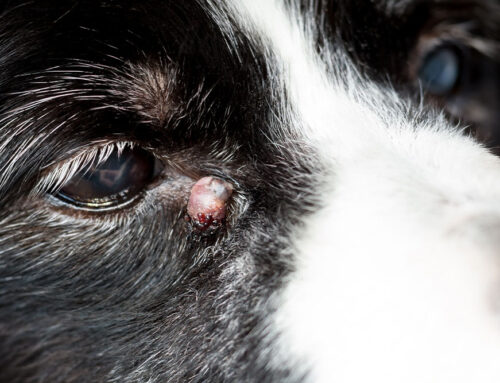Heartworm disease is a mosquito-borne parasitic infection that affects more than a million U.S. pets. This life-threatening but preventable disease, which can be found in every state, can lead to heart failure, permanent lung damage, and sudden death in pets.
Fortunately, protecting your pet is safe, convenient, and easier than ever. Use this Village Animal Hospital team’s heartworm disease and prevention guide to learn how.
Your pet’s health can change in a heartbeat
One bite from an infected mosquito is all that is required to initiate the heartworm life cycle in your dog or cat. What happens next depends on whether your pet receives a consistent parasite prevention regimen and yearly testing.
For pets who receive year-round heartworm preventives (e.g., tablets, topicals, injectable medication), the threat is easily neutralized. But, unprotected pets—including those who’ve missed only a single dose—become an unwilling host for one of the most dangerous pet parasites on the planet.
What happens during heartworm disease in pets
When an infected mosquito bites your pet, they inject juvenile heartworms (i.e., microfilariae) in their saliva under the pet’s skin. Over the next 8 to 10 weeks, the microfilariae migrate through your pet’s tissues into the bloodstream toward their destination in your pet’s lungs and heart. There, they mature into long spaghetti-like worms and cause a cascade of inflammation, vascular blockages, and organ damage.
Because dogs are natural heartworm hosts, they tend to experience large infections (e.g., 30 to 100 worms). Alternatively, cats are considered atypical hosts and can eliminate most circulating microfilariae on their own, although, unfortunately, only one or two adult worms can cause life-threatening harm in the tiny feline heart.
Heartworm disease signs in pets
Early heartworm disease is virtually undetectable in dogs until the worms mature and reach their full length—up to 12 inches long—and create congestion in the heart and lungs, impede normal blood flow, and cause inflammation and damage to the vessel lining. With these internal changes, corresponding outward signs appear, and may include:
- Persistent cough
- Exercise intolerance
- Unexplained weakness and fatigue
- Appetite loss
- Vomiting
- Pot-bellied appearance, despite weight-loss
- Fainting or collapse
- Sudden death
As atypical hosts, cats may display seemingly unrelated signs, such as seizures and incoordination, and they also are prone to a microfilariae-induced reaction known as heartworm-associated respiratory disease (HARD). Because of this, heartworm-positive cats are frequently misdiagnosed with asthma or upper airway disease. Sadly, many cats are completely asymptomatic, and sudden death is the first and only sign of their heartworm disease.
A pound of cure—heartworm disease treatment in pets
Heartworm disease can successfully be treated in dogs—but only at a steep cost. Treatment is not only expensive when compared with preventives, but also painful, lengthy, and tedious for the dog.
Heartworm positive dogs receive a series of deep-muscle injections to kill the adult heartworms and are given preventives to eliminate circulating microfilariae, which effectively breaks the heartworm life cycle and prevents further spread. Although this process sounds straightforward—and is much safer than previous treatment—dogs must be kept under strict activity restriction after diagnosis and throughout treatment to prevent dangerous complications as the dead and dying worms move out of circulation. The entire process may take several months.
Heartworm prevention is the only option for cats
Sadly, no safe heartworm treatment is available for cats. However, some cats can clear heartworm infection or, with stabilization and supportive care, outlive their small adult worm burden. Despite this, side effects may be permanent and require lifelong medical care.
The clear choice for your cat’s protection is diligent, year-round, veterinarian-prescribed heartworm prevention.
Year-round heartworm prevention is critical for all pets
Heartworm disease and its mosquito henchmen have no limitations or preferences—they can reach any pet, in any season, and in any location, including indoors. Year-round heartworm prevention is the only effective and safe way to ensure complete protection for your beloved pet.
Your Village Animal Hospital veterinarian will tailor preventive recommendations to suit your pet’s needs and preferences (e.g., oral versus topical). No matter which product you decide to use, administration must be consistent, so create a smartphone reminder, picking a memorable date (e.g., the first of the month), or set up a one-dose automated order (i.e., autoship) in our online pharmacy to ensure your pet never misses a dose.
Annual heartworm screening tests ensure your dog is protected
Heartworm testing is an annual recommendation for every yearly canine wellness visit at Village Animal Hospital. This simple blood test may seem redundant for pets receiving heartworm prevention, until you realize that one missed, forgotten, misapplied, or vomited dose can leave your pet vulnerable to heartworm disease.
Annual screenings can detect infection at its earliest stages, allowing rapid intervention and a better outcome and recovery. The tests can also reveal breakthrough infections, which are less common, but can occur as heartworms become resistant to certain active ingredients in older heartworm prevention medications.
Don’t go breaking our hearts—keep your pet up-to-date on heartworm prevention and testing. For additional information about heartworms or to schedule your pet’s wellness services, contact our American Animal Hospital Association (AAHA)-accredited team at Village Animal Hospital.









Leave A Comment